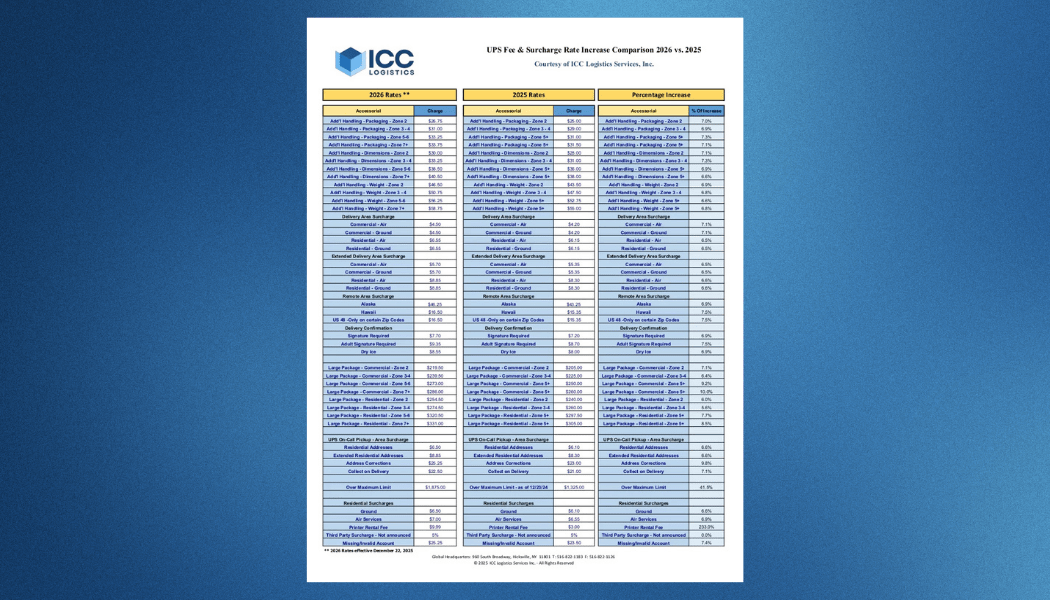Today, every business is analyzing more and more internal data to track their operational efficiencies, financial and overall profitability assessments, as well as their customer’s buying trends. This internal data is certainly valuable for every company to assess what’s working, what’s not working and what changes need to be made to enhance overall business efficiency as well as ensure continuing profitability.
An area of data analytics that is often overlooked which would clearly help businesses assess these same areas is what we refer to as “Third Party Data” which often times is not considered when evaluating a company’s profitability.
Take for instance the comprehensive data available from transportation and logistics invoices. Whether a company processes these invoices for payment internally, or utilizes a third party audit and payment firm to perform that task, freight carrier invoice data can be extremely beneficial when companies measure operational efficiencies, financial condition as well as customer buying habits.
We would like to focus on the real value this external invoice data can provide in order to improve a company’s overall profitability.
- First and foremost, companies should be tracking their overall transportation expenses as a percentage of overall sales. The costs should be evaluated month by month as well as year over year. This calculation however can vary greatly depending on various scenarios. These include tracking actual origins and destinations of shipments, period by period. Which carriers are utilized can also provide variable data. Shipment weights can vary as well and therefore costs per shipment or per pound may also vary. It’s always important to make sure you are comparing apples to apples and if not, taking into account all of the variables in the analyses.
We have heard from some CFO’s as well as from various accountants that they do measure these costs, but at a very high level. The result is what we call a “comfort level assessment.” What do we mean by this term? If the freight costs fall within a predetermined percentage of sales, the presumption is everything is good and they do not dig any deeper.
In some cases, these internal assessments of “all is good” happen even when the most basic process of having an independent third party invoice audit is not performed. That makes absolutely no sense. The value of these audits is two-fold. First, if the company has been overbilled, the audit firm will file for refunds and share those refunds with the shipper. Secondly, and more importantly, a good audit firm will make recommendations on how the company can further save money on their freight expense. Truly valuable information at very reasonable costs. In reality, if the auditor comes up empty handed, there is no charge for the service.
- Digging deeper into freight invoice data metrics, a company’s Truckload shipment data should be analyzed on a cost per mile basis, and/or a cost per pound basis. Here too, rates can vary from carrier to carrier and can also vary due to other conditions including continuous changes in fuel surcharges. Contract rates can vary from Spot rates and as many shippers witnessed last year and this will certainly continue this year. By some estimates, Truckload rates have increased by 80% within the last year.
The best way for a company to analyze the efficiency of its logistics network is to continually benchmark the rates they are paying with other service providers. Some shippers work in a multi-tiered truckload environment which include contract rates that typically are stable for periods of 6-12 months, while at the same booking a percentage of their shipments on the spot market.
- Another area that is often overlooked is the analysis of shipment efficiency from the freight invoice data. What we mean by shipment efficiency, is working to route shipments across all modes of transportation as efficiently as possible to gain the best level of service at the lowest available rates. Some examples include marrying large LTL shipments into truckloads with stop offs to generate not only lower shipping costs, but usually improved transit times. A true win/win combination.
Shipping efficiencies are quite often overlooked in the parcel shipping arena. Take for example shipments that are sent via a two-day delivery service where parcel shippers pay handsomely for expedited services, when often times those packages would be delivered second day in the normal ground service environment. The same can be said for paying for the high cost of Next Day shipping when in some cases these shipments would also be delivered the next day utilizing standard ground services, perhaps not in the 8:30 to 10:30 AM timeframe, however. But the real question is, does the customer REALLY require an early AM delivery time?
To take this one step further, shippers MUST become knowledgeable about each and every parcel carriers service offerings, transit times, as well as accessorial fees and surcharges that apply to their shipments. The combination of all of these pricing elements can and should be used to develop clear cut routing guidelines to ensure the fastest delivery service at the least possible cost.
Taking these transportation and logistics analyses even deeper, should involve utilizing Third Party Consultants to Benchmark and Target Price a company’s rates, services and contract terms and conditions. This process will ensure the company does in fact have Best in Class rates as well as Best in Class Contract Terms and Conditions. The reality is that regardless of the annual transportation and logistics spend of a company, without these competitive benchmarking capabilities, a shipper will never really know how well or how poorly they are doing.
Think your company has the most competitive rates for the transportation and logistics services it utilizes? Give us a call for a NO COST/NO OBLIGATION transportation diagnostic analysis.



 to receive our FREE white papers:
to receive our FREE white papers: